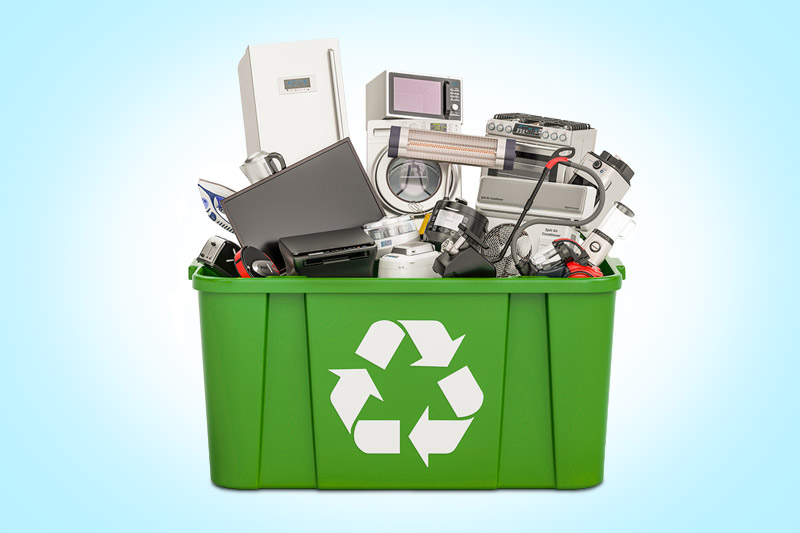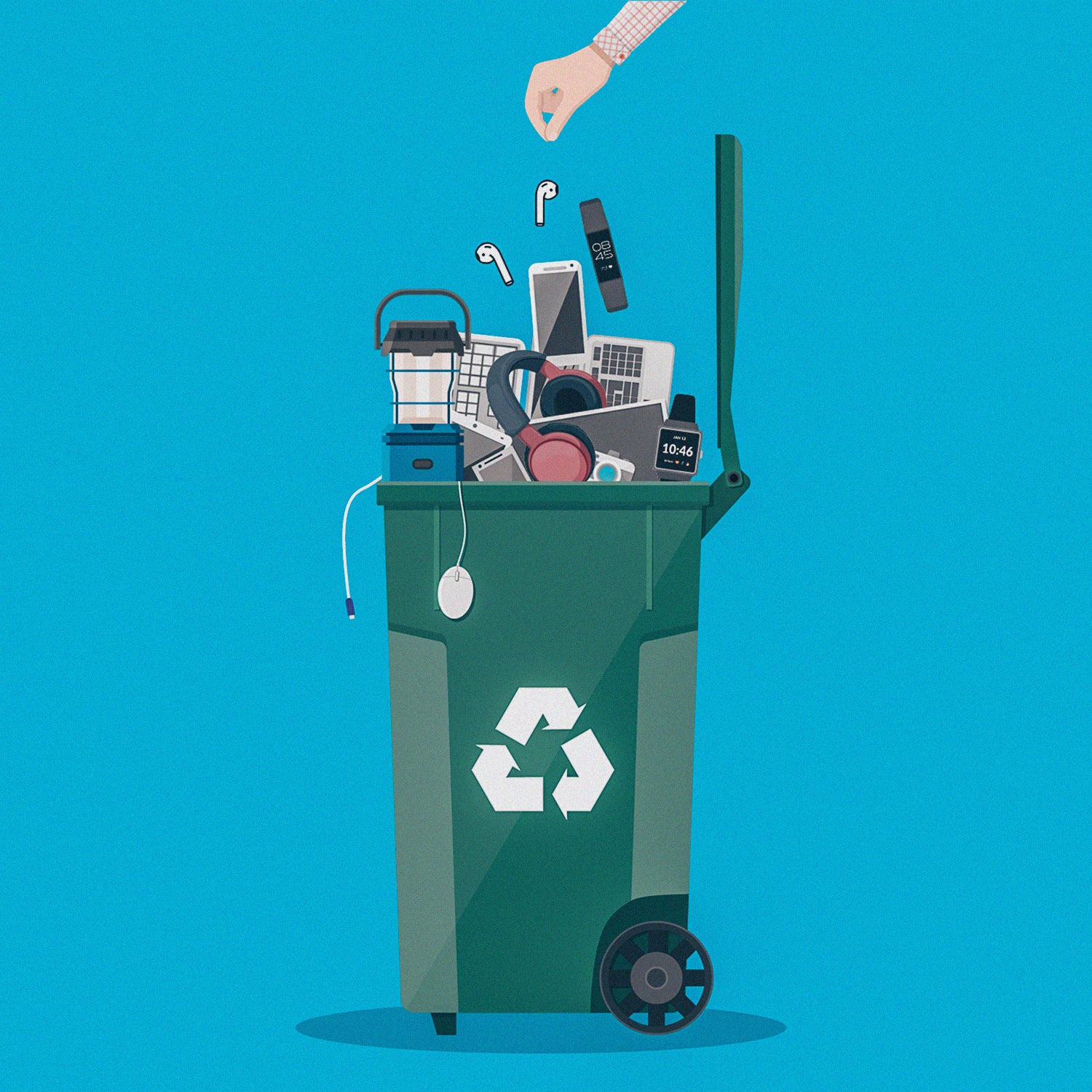Sustainable Electronics Disposal: Guarantee Conformity with R2 Certification
Wiki Article
Elevate Your E-Waste Management With R2 Accreditation: a Comprehensive Summary
In the realm of liable digital waste management, the significance of carrying out effective techniques can not be overstated. As technology rapidly evolves, the need for appropriate disposal and recycling of electronic devices has come to be increasingly critical. One secret method to elevate e-waste administration practices is by achieving R2 certification. This qualification stands as a characteristic of excellence in the field, signifying adherence to rigorous standards that guarantee ecologically audio methods. By exploring the advantages and procedures associated with R2 certification, a deeper understanding of how it can transform e-waste monitoring techniques arises, shedding light on a path in the direction of sustainability and moral disposal methods.Significance of E-Waste Management

When e-waste is not taken care of appropriately, these toxic compounds can seep into the ecological community, creating injury to wild animals and potentially going into the food chain, posturing threats to human health. Moreover, the improper disposal of e-waste adds to contamination and greenhouse gas emissions, exacerbating environment modification and ecological deterioration.

Benefits of R2 Qualification

Firstly, R2 accreditation enhances integrity by showcasing a company's commitment to lasting practices. It guarantees consumers, partners, and stakeholders that the business sticks to stringent requirements for e-waste monitoring - r2 certification. This trustworthiness can bring about enhanced trust fund and improved connections with customers that prioritize environmental obligation
Second of all, R2 qualification helps reduce threats linked with improper e-waste disposal. By complying with the stringent standards stated by the certification, organizations can lessen the chance of information violations, environmental contamination, and legal consequences. This positive technique safeguards the firm's reputation and minimizes potential obligations.
Finally, R2 accreditation shows a dedication to ecological stewardship - r2 certification. By properly handling digital waste with accredited procedures, companies add to the preservation of resources, reduction of contamination, and promotion of a round economy. This commitment not only profits the atmosphere yet additionally lines up with developing customer expectations for lasting business practices
R2 Accreditation Process Overview
Having actually developed the advantages of R2 accreditation in promoting other reliability, risk mitigation, and ecological stewardship, it is important to currently detail the in-depth process involved in getting this accreditation. The R2 accreditation process starts with a complete evaluation of the organization's functional policies and procedures to make certain compliance with the R2 standard. This first evaluation is essential in recognizing any type of gaps that require to be attended to before continuing additionally.Once the company's methods straighten with the R2 common requirements, an independent third-party auditor performs an on-site audit to examine the implementation and performance of these practices. This audit consists of an extensive testimonial of paperwork, meetings with personnel, and physical examinations of facilities to validate compliance.
Adhering to a successful audit, the company receives an accreditation choice based on the auditor's searchings for. If approved, the organization is provided R2 certification, showing its dedication to accountable e-waste monitoring. It is essential to keep in mind that keeping R2 certification calls for ongoing compliance with the requirement's needs and periodic audits to make sure ongoing adherence to best methods in e-waste recycling and disposal.
Trick Criteria for R2 Compliance
A necessary aspect of achieving R2 compliance is making certain that all electronic waste (e-waste) processing facilities satisfy rigorous ecological and safety requirements. To conform with R2 needs, companies must comply with essential requirements that concentrate on liable e-waste monitoring practices. These criteria include executing a documented environmental, health and wellness, and safety and security monitoring system, making certain the secure handling of data-containing devices, and conducting extensive downstream due diligence to track the final destination of e-waste materials.Furthermore, R2 compliance necessitates the proper testing, refurbishment, and recycling of digital tools to expand its valuable life and decrease ecological influence. Facilities looking for R2 accreditation should likewise prioritize worker wellness and safety by offering necessary training, individual safety equipment, and a risk-free workplace. Furthermore, keeping thorough documents of e-waste processing activities and routinely undergoing audits by certified licensing bodies are crucial elements of demonstrating continuous conformity with R2 requirements.
Impacts of Sustainable E-Waste Practices
The implementation of lasting e-waste practices according to R2 conformity not only makes certain environmental and safety criteria are fulfilled but additionally considerably affects the total lifecycle of digital items. By adhering to R2 criteria, electronic waste management processes come to be extra effective, decreasing the environmental impact of electronic products. Sustainable e-waste methods facilitate the correct disposal of electronic components, making certain that harmful products are handled sensibly and do not finish up polluting the environment.Additionally, embracing sustainable e-waste techniques advertises the round economic situation by promoting the healing and reuse of useful materials from digital items. This not only preserves valuable sources yet likewise reduces the requirement for resources removal, reducing the ecological influence of electronic production. Furthermore, lasting official website e-waste practices can contribute to work creation in the recycling and refurbishment markets, cultivating economic growth while promoting environmental duty. Overall, the adoption of sustainable e-waste methods under R2 accreditation acts as an essential step in the direction of attaining an extra environmentally sustainable electronics industry.
Verdict
To conclude, implementing correct e-waste monitoring techniques is critical for environmental sustainability and resource preservation. R2 qualification plays a vital duty in making sure accountable handling and disposal of electronic waste. By adhering to the rigorous standards stated by R2 requirements, organizations can not just lessen their environmental impact but additionally add to a more sustainable future for generations ahead.One secret method to boost e-waste monitoring practices is by attaining R2 qualification. By discovering the procedures and benefits linked with R2 Extra resources accreditation, a deeper understanding of just how it can transform e-waste management strategies emerges, losing light on a path in the direction of sustainability and honest disposal practices.
The R2 qualification process starts with a complete review of the company's operational plans and procedures to make sure compliance with the R2 criterion. If approved, the company is granted R2 accreditation, demonstrating its commitment to liable e-waste administration. On the whole, the adoption of lasting e-waste practices under R2 accreditation offers as an important action towards accomplishing an extra ecologically lasting electronic devices market.
Report this wiki page